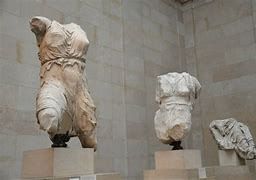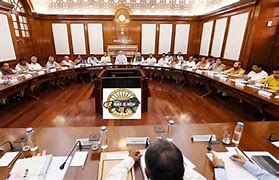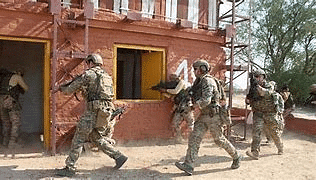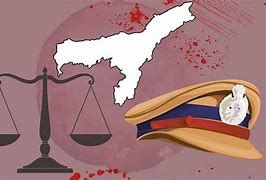UPSC Daily Current Affairs- 30th November 2023 | Current Affairs & Hindu Analysis: Daily, Weekly & Monthly PDF Download
GS-I
Parthenon Sculptures at the centre of the row between Britain and Greece
Subject: History and Culture

Why in News?
Recently, British PM Rishi Sunak cancelled a meeting with his Greek counterpart Kyriakos Mitsotakis over the status of the Parthenon Sculptures housed at the British Museum.
- It prompted Athens to accuse London of trying to avoid discussing the contested sculptures, also known as the Elgin Marbles.
- Over the years, Greece has repeatedly asked for the sculptures’ permanent return to Athens, but the British Museum have refused to do so.
What are the Parthenon Sculptures?
- About
- The Parthenon Sculptures at the British Museum are more than 30 ancient stone sculptures from Greece that are more than 2,000 years old.
- Most of them originally adorned the walls and grounds of the Parthenon temple on the rocky Acropolis hill in Athens.
- Completed in 432 BC, the temple is dedicated to the goddess Athena and is seen as the crowning glory of Athens’ Golden Age.
- Made between 447BC and 432BC they consist of:
- a frieze which shows the procession of the Panathenaic festival (the commemoration of the birthday of the goddess Athena);
- a series of metopes (sculpted relief panels) depicting the battle between Centaurs and Lapiths at the marriage-feast of Peirithoos; and
- figures of the gods and legendary heroes from the temple's pediments.
- The Parthenon Sculptures at the British Museum are more than 30 ancient stone sculptures from Greece that are more than 2,000 years old.
- History of Parthenon
- The Parthenon was constructed in the 5th century BC, reflecting the power and dominance of the then city-state of Athens.
- It became a symbol for the modern nation state of Greece following independence from the Ottoman Empire in 1832.
- When Athens was selected as capital of the new country in 1834, most of the post-Roman period structures on the Acropolis were removed.
- This was to accommodate further archaeological exploration and to return the site to a state that reflected Greece's idealised 'Classical' past.
- The Parthenon itself has a complex history. It has been a temple, a church, a mosque and is now an archaeological site.
- It has sustained significant damage throughout its long history, in particular as a result of an explosion while it was in use as an ammunition store in 1687; this left the Parthenon as a ruin.
- The Architecture of the Parthenon
- For ancient Greeks, mathematical ratios formed the basis of ideal standards such as harmony, beauty, and balance.
- Thus, their architectural styles reflect these mathematical ratios.
- The Parthenon was designed and built in the Doric style, while also incorporating some Ionic elements.
- Doric architecture features fluted columns without bases, topped with simple capitals, or tops, that are rectangular.
How did the sculptures reach Britain?
- They were removed from the Parthenon in the early 19th century by Thomas Bruce, the 7th Earl of Elgin and then-British ambassador to the Ottoman Empire.
- The marbles were taken to Britain and purchased by the British Museum in 1816.
Were the sculptures stolen?
- While Athen accused Lord Elgin of theft, he insisted he had permission to remove the marbles from the Ottoman Empire, which used to control Athen at the time.
- The original letter giving him permission, however, has been lost and its text remains disputed.
- Athens has been demanding the return of the sculptures since it became independent in the early 1830s.
- The campaign gained momentum in the 1980s after Greek Oscar-nominated actress Melina Mercouri launched a movement for their return when she was culture minister between 1981 and 1989.
How did Britain respond?
- The British Museum, the caretaker of the sculptures, claims that they were acquired by Elgin under a legal contract with the Ottoman Empire.
- Hence, it has rejected the demands of their return.
- In March, PM Sunak said the marbles are a huge asset to the UK and ruled out changing a law that would allow the sculptures to be given back to Greece.
Source: Indian Express
GS-II
Finland
Subject: International Relations

Why in News?
Recently, Finland announced that it will close its last remaining road border with Russia due to its concerns over migration.
Background:-
- Finnish Prime Minister Petteri Orpo has said, that Finland will close its last remaining road border with Russia due to its concerns over migration, as the country accused Moscow of undermining Finland’s national security.
About Finland:-
- Capital: Helsinki
- Finland, a country located in northern Europe.
- Finland is one of the world’s most northern and geographically remote countries.
- It is subject to a severe climate.
- Finland forms a symbolic northern border between Western and Eastern Europe.
Bilateral relations:-
- Finland has excellent relations with India.
- Finland established diplomatic relations with India in 1949, after the country had gained independence in 1947.
- In recent years, the consolidation of the political and economic cooperation between the countries has been reflected in an increase in joint initiatives and the active exchange of delegations.
Trade and economic relations:-
- Finland’s trade and economic relations with India rely on the export of paper, machinery, equipment and industry services from Finland to India.
- India’s exports to Finland are correspondingly centred on pharmaceutical, chemical and textile products.
- Services – particularly in the area of ICT and digital solutions also have a significant role in Indian exports to Finland.
Source: AIR
Govt clears Terms of Reference of 16th Finance Commission
Subject: Polity and Governance
Why in News?
The Union Cabinet has approved the Terms of Reference (ToR) for the 16th Finance Commission.
- The government has set a deadline of October 31, 2025, for the panel to submit its recommendations.
About Finance Commission:
- The Finance Commission is constituted by the President under Article 280 of the Constitution.
- Objective: To give its recommendations on distribution of tax revenues between the Union and the States and amongst the States themselves.
- Two distinctive features of the Commission’s work involve:
- Redressing the vertical imbalances between the taxation powers and expenditure responsibilities of the Centre and the States respectively;
- Equalization of all public services across the States.
Functions of the Finance Commission:
- The distribution between the Union and the States of the net proceeds of taxes which are to be, or may be, divided between them and the allocation between the States of the respective shares of such proceeds;
- The principles which should govern the grants-in-aid of the revenues of the States out of the Consolidated Fund of India;
- The measures needed to augment the Consolidated Fund of a State to supplement the resources of the Panchayats in the State on the basis of the recommendations made by the Finance Commission of the State;
- The measures needed to augment the Consolidated Fund of a State to supplement the resources of the Municipalities in the State on the basis of the recommendations made by the Finance Commission of the State;
- Any other matter referred to the Commission by the President in the interests of sound finance.
Who Appoints the Finance Commission and what are the Qualifications for Members?
- As mentioned earlier, the Finance Commission is appointed by the President under Article 280 of the Constitution.
- The chairman and members of the commission are selected as per the provisions contained in the Finance Commission [Miscellaneous Provisions] Act, 1951 and the Finance Commission (Salaries & Allowances) Rules, 1951.
- The chairman of the commission is selected from among persons who have had experience in public affairs.
- Four other members are selected from among persons who:
- are, or have been, or are qualified to be appointed as Judges of a High Court; or
- have special knowledge of the finances and accounts of Government; or
- have had wide experience in financial matters and in administration; or
- have special knowledge of economics
Reports of Finance Commission:
- Under Article 281 of the Constitution, the President is required to cause laying of the Finance Commission report before each House of Parliament along with an explanatory note and the action taken by the government on the Commission’s recommendations.
- It is important to note that recommendations made by the Commission are not binding on the Government.
How are the Recommendations of the Commission Implemented?
- The recommendations of the Finance Commission are implemented as under:
- Those to be implemented by an order of the President:
- The recommendations relating to distribution of Union Taxes and Duties and Grants-in-aid fall in this category.
- Those to be implemented by executive orders:
- Other recommendations to be made by the Finance Commission, as per its Terms of Reference.
- Those to be implemented by an order of the President:
When was the First Commission Constituted?
- The First Finance Commission was constituted under the chairmanship of Shri K.C. Neogy on 6th April, 1952.
- Fifteen Finance Commissions have been constituted so far at intervals of every five years.
Is the Finance Commission unique to India?
- Most federal systems resolve the vertical and horizontal imbalances through mechanisms similar to the Finance Commission. For example, Australia and Canada.
What is the Tenure of the 15th Finance Commission?
- The Finance Commission was required to give its report by 30th October, 2019.
- Its recommendations made by the commission will cover the five-year period commencing from 1st April, 2020.
- However, the Fifteenth Finance Commission, which was headed by Shri N.K. Singh, had been given an extended mandate to make recommendations for six years up, till 2025-26.
Source: The Hindu
GS-III
Pirola
Subject: Science and Technology

Why in News?
Pirola, has seen a threefold increase in cases over a two-week period.
Background:-
- Pirola is predominantly circulating in the US northeast, where it ranks as the second most prevalent variant (13%) following HV.1.
About Pirola:-
- Pirola or 2.86 Variant is a new strain of COVID-19 with 35 mutations, causing concerns about immune evasion and vaccine efficacy.
- It demonstrates distinct symptoms like rashes, conjunctivitis, and diarrhoea.
- The Pirola variant has been detected in several countries, including the US, the UK, and others.
- The fact that these cases are unrelated suggests some degree of international transmission, which is concerning.
- The concern with such mutations is that they could potentially make the virus more transmissible or resistant to immunity gained from previous infections or vaccinations.
- The WHO has classified BA.2.86 as a variant under monitoring.
- The spike protein of the Pirola variant has over 30 mutations, which is the protein that the virus utilizes to bind to human cells.
- This indicates that the Pirola variant could be more contagious or evade vaccines more than other Omicron subvariants.
Source: Times of India
VAJRA PRAHAR
Subject: Defence

Why in News?
Recently, Indo-US Special Forces Exercise Vajra Prahar Began.
Background:-
- Indian and US special forces on Tuesday started joint exercise “Vajra Prahar” at the Joint Training Node, in Umroi, Meghalaya.
About VAJRA PRAHAR:-
- Date: November 21 to December 11, 2023.
- Time period: it is conducted annually.
- Venue: Umroi Cantonment, Meghalaya.
- Vajra Prahar is an annual exercise alternately hosted by the Special Forces of India and the United States.
- These Special Forces units are dedicated to covert operations, counterterrorism, and other specialized military tasks.
- It is crucial for addressing the security challenges both nations face in the current global context.
- VAJRA PRAHAR has evolved as a platform to exchange ideas, enhance interoperability, and strengthen defence cooperation between the Special Forces of both India and the United States.
- The exercise is conducted in two phases, involving combat conditioning, tactical-level special missions training exercises, and a subsequent validation phase to assess and confirm the training received by both contingents.
- Key activities include Combat Free Fall insertion of troops, Waterborne insertion of troops, Precision engagement of targets at long ranges, Combat air controlling of fixed-wing and rotary-wing aircraft, and Airborne insertion and sustenance of troops.
Source: Times of India
Halal Certification Ban in Uttar Pradesh
Subject: Economics

Why in News?
On November 18, the Uttar Pradesh government imposed a state-wide ban on the “production, storing, distribution, and sale of halal certified edible items.”
Understanding Halal and Halal Food
- Definition of Halal: ‘Halal’ is an Arabic term meaning ‘permissible’ in English.
- FAO Guidelines on Halal Food: The Food and Agriculture Organization defines halal food as compliant with Islamic Law, including specific slaughter methods.
- Vegetarian Food and Halal: Generally, vegetarian food is deemed halal unless it contains prohibited substances like alcohol.
- Labeling of Halal Products: Products claimed as halal must visibly display this on their labels.
Halal-Certified Products
- Purpose of Certification: Halal certification ensures food preparation adheres to Islamic law and is free from contamination.
- Certification Bodies in India: Various private companies in India, like Halal India Pvt Ltd and Jamiat Ulama-i-Hind Halal Trust, offer halal certification. Some are government-recognized, while others are not.
Controversy Surrounding Halal-Certified Products
- Legality: The debate centers on the legality of certificate-issuing authorities and allegations of targeting specific religious communities.
- Parallel Authority issue: The Indian government does not require halal certification; FSSAI certification is the standard for edible products.
- International Trade and Halal Certification: As per the USDA 2022 report, halal certification is not essential for export or import trade permissions.
- Religious violations: A case was filed against entities in Lucknow for purportedly exploiting religious sentiments to enhance sales through halal certification.
Legal Aspects of Halal Certification
- Complaints against Certification: Complaints have emerged against companies for allegedly issuing forged halal certificates for financial benefits.
- Accusations of Illegal Certification: These companies are accused of lacking official recognition to issue halal certificates.
Halal Certification System in India
- Certifying Agencies: Various agencies provide halal certification to Indian companies, products, or food establishments.
- Government Accreditation: The National Accreditation Board for Certification Bodies under the Quality Council of India accredits these Halal Certification Bodies.
- Advantages of Certification: Certification from recognized bodies benefits companies in both domestic and international markets.
- DGFT Guidelines: The Directorate General of Foreign Trade mandates that only facilities with valid certification from accredited bodies can export ‘halal certified’ meat and meat products.
- Government’s i-CAS Scheme: The ‘India Conformity Assessment Scheme’ was developed to regulate the halal certification process.
Implications of the Ban
- Quality confusions: The ban aims to address confusion over food quality standards and align with the Food Safety and Standards Act.
- Curbing forged certification: Companies issuing forged certificates are accused of fostering social unrest and betraying public trust.
- Economic Impact: There are apprehensions about a potential conspiracy to undermine the sales of non-halal certified products.
- Financial Misuse: There are allegations that profits from these activities could be funneled towards supporting terrorist organizations and anti-national activities.
Conclusion
- This ban reflects the complex interplay between food safety regulations, religious practices, and commercial dynamics.
- It highlights the need for a balanced approach in addressing such multifaceted issues.
Source: The Hindu
How UAPA has become more draconian over the years?
Subject: Defence and Security

Why in News?
Students in Jammu & Kashmir were booked under the Unlawful Activities (Prevention) Act (UAPA) after allegations of abuse and threats during the World Cup final, along with raising pro-Pakistan slogans.
- Jammu & Kashmir police invoked a ‘softer provision’ of UAPA, citing the act of ‘terrorizing’ others with pro-India or anti-Pakistan sentiments.
What is UAPA?
- Purpose: UAPA empowers the government to investigate and prosecute acts of terrorism, and to designate entities as “unlawful” or “terrorist” organizations or individuals.
- Enactment: Introduced in 1967, based on recommendations from the National Integration Council to counter national divisiveness. Initially focused on secessionist activities without explicit mention of terrorism.
- Evolution of UAPA:
- Introduction of Terrorism (2004): Post-repeal of POTA, UAPA was amended to include terrorism. It defined terrorism, associated punishments, and introduced provisions for seizing ‘proceeds of terrorism’.
- Post-26/11 Amendments (2008): Expanded the definition of terrorism, introduced stringent bail conditions, and extended police and judicial custody durations. It also made bail more difficult to obtain and shifted the burden of proof to the accused in certain cases.
- Economic Security (2012): Included economic security under terrorism, categorizing activities like counterfeiting currency as terrorist acts. It also increased the duration for which an organization could be declared unlawful.
- Individual Designation (2019): Allowed the government to designate individuals as terrorists and expanded the NIA’s powers.
The ‘Softer’ Provision: Section 13
- Section 13 of UAPA: Deals with punishment for ‘unlawful activities’ rather than ‘terrorist activities’. It includes imprisonment up to seven years for participating in, advocating, abetting, or inciting unlawful activities.
- Implications: Although termed ‘softer’, this section still carries significant penalties and makes bail challenging to obtain.
Criticism and Concerns
- Vague Definitions: The act’s broad and vague definitions, especially post-2008 amendments, allow for a wide interpretation of what constitutes terrorism or unlawful activities.
- Human Rights Concerns: The act has been criticized for potentially violating human rights, including the presumption of innocence and the right to a fair trial.
- Use against Dissenters: There have been instances where UAPA has been used against activists, journalists, and protestors, raising concerns about its use to suppress dissent.
Conclusion: Balancing Security and Rights
- Need for Scrutiny: The use of UAPA, especially its ‘softer’ provisions, requires careful scrutiny to ensure it doesn’t infringe on fundamental rights while addressing security concerns.
- Debate on Amendments: Ongoing debates about UAPA focus on finding a balance between national security needs and the protection of individual rights and freedoms.
Source: Indian Express
|
63 videos|5408 docs|1146 tests
|
FAQs on UPSC Daily Current Affairs- 30th November 2023 - Current Affairs & Hindu Analysis: Daily, Weekly & Monthly
| 1. What are the Parthenon Sculptures? |  |
| 2. What is the dispute between Britain and Greece regarding the Parthenon Sculptures? |  |
| 3. What is the significance of the Parthenon Sculptures to Greece? |  |
| 4. What is the current status of the Parthenon Sculptures dispute? |  |
| 5. What are the arguments for and against the return of the Parthenon Sculptures to Greece? |  |
















